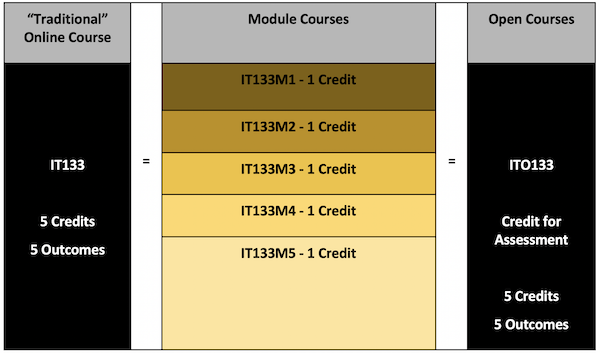Published on
How University Partnerships Can Support Employer Competitiveness

An increasingly competitive labor market and concomitant talent shortages have led to innovative partnerships between higher education and industry. Employers are finding greater value in upskilling their current workforce than in trying to recruit talent with those skills. Organizational research supports them. A recent report by the Society of Human Resources Management estimated the cost to hire a new employee at $4,129, with an average hiring time of 42 days. It is often more cost-effective to train an existing staff. For years, studies have found an engaged workforce is more productive, and that employee engagement is correlated with both revenue and income.
It makes a great deal of sense to invest in the development of loyal employees who are already familiar with the culture and values of the organization by helping them stay challenged professionally, build the skills they need to progress, and contribute more to the success of the organization, thereby increasing both their engagement and productivity.
At Purdue University Global we have found that becoming an outcomes-focused university has enabled us to flexibly meet employer needs. Adult learners come to our university with diverse educational and employment backgrounds. We leverage their existing skills and knowledge to provide alternative ways they can learn and progress. Our curricular model and operational infrastructure organizes and supports learning at the outcome and credit level, enabling us to provide employers with many different paths to desired credentials.
The content in our traditional courses is organized around outcomes: one outcome for each credit. In parallel, we have created single-credit course modules aligned to our traditional courses. These one-credit modules have the same content and outcomes they would have if organized in a traditional course. All assessments for a particular outcome are identical, regardless of instructor or course type, enabling maximum flexibility of course delivery.
Why do we care so much about credits? We believe that, while employers might not care about them, students are best served when their learning is stackable. Today, the credit hour is the best way we have to track and stack learning so that it is transferable among institutions and employers.
Alignment of course content and outcomes across all formats and degree path options maximizes credit articulation, as well as flexibility and movement between different course formats. By reviewing a student’s academic and career goals, prior learning, work experience, support needs and available time for education, we can help find the best and most efficient path to achieve credential completion and career goals.
Our flexibility at the student level translates into flexibility at the employer level. Because we can articulate training and work experience at the credit level, rather than course level, and because we teach modules as well as courses, the programs we deliver to employers can be highly customized. Employees learn what the need just when they need it. Neither employees nor employers waste precious time, money or energy on already acquired knowledge and skills.
The programs Purdue University Global offers employers run the gamut from microcredentials and certificates to undergraduate and advanced degrees, depending on the needs of the student and the business. We have helped place students in internships and apprenticeships that led to full-time job opportunities. In fact, some of the best collaborations happen when companies work with us to design a curriculum in which some of the training is done at the employer’s worksite and some is done with us, online.
In 2019 alone, Purdue University Global created a variety of customized partnerships with employers to address their specific needs. At Trilogy Health Services, our program elevates the skills and career growth of senior care providers. We tailored certificate programs to enhance the knowledge of best practices in physical security for Securitas. We’re collaborating on pathways to debt-free degrees for Walmart employees through our partnership with Guild Education. We’re providing employer-paid degree programs for Papa John’s employees.We are partnering with regional healthcare providers on programs to accelerate the pathway for nurses to achieve their bachelor’s degrees, a major challenge especially in rural areas of the country.
ManTech, a global leader in technology solutions, needed a way to offer a cloud computing program to its variously skilled employeesso it could better meet the evolving needs of its clients. Purdue University Global’s Cloud Computing offering fit the bill. Beginners start with basic concepts in cloud computing, such as infrastructure administration and migrating data to the cloud. More experienced individualscan accelerate into advanced courses tailored to their deeper knowledge.
Our work is tremendously rewarding as we have the capacity to provide students with potentially continuous education to prepare them to maintain their place in an increasingly mobile and agile global workforce. Of course, the ultimate measures of success for these programs are employers’ ability to attract and retain employees and the number of employees who earn credentials to reach their fullpotential.
Author Perspective: Administrator




